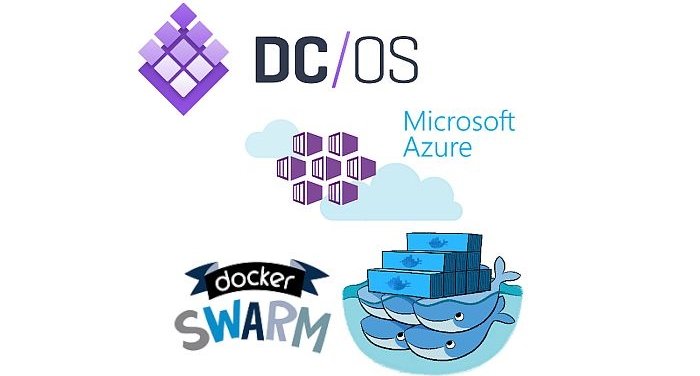
A few years back everyone was talking about Virtualization and how it has changed the IT Landscape – now Microsoft Azure has come up with Containers which is the next big thing in the Cloud Computing world. Containers would be able to run on any hardware, cloud or any environment without much modification. What this means is that Customers would now be able to write their Apps once and deploy everywhere – Test, Dev or Production.
Microsoft is planning to provide an approach to manage containers in the cloud through scaling containers in production with proven open source container orchestration technology. In recent days Microsoft has released a lot of updates to Azure Container Service to enhance and streamline, open and flexible way for running container applications in the cloud. Some of the major updates are mentioned below:
- Kubernetes on Azure Container Service: Can’t wait to get this fully released and play with it but it’s still in Preview and Kubernetes 1.4 offers support for native Azure networking, load-balancer and Azure disk integration. Now Kubernetes on Azure Container Service provides deeper and native support for fully open source choice for container orchestration engine on Azure. So we will have more options to choose Cloud Orchestration with Containers to support fully open source solutions in DC/OS, Docker Swarm and Kubernetes. For more info on the above please go >>> here
- DC/OS Upgrade to 1.8.4: The new version includes flexible new virtual networking capabilities along with job-scheduling and Marathon-based container orchestration merged right into the DC/OS UI. Moreover, GitLab, Artifactory, Confluent Platform, DataStax Enterprise and Operations Management Suite are also available for one-click installation from the DC/OS Universe app store. This is something very interesting and new which honestly I never expected to come out so soon.
- VS, VSTS and VS Code integration and deployment to Azure Container Service: Microsoft Azure Container Service also brings a new experience to set up continuous integration and deployment of multicontainer Linux applications using Visual Studio, Visual Studio Team Services and the open source Visual Studio Code. This really helps in enabling deployments at a fast pace and I think Microsoft has some more plans to invest in this in the coming weeks. This will simplify the whole Dev-to-Test-to-Prod deployment for container workloads by choosing of development and CI/CD solutions.
- Open Source ACS Engine: This really shocked a lot of people and this shows some of the fundamental changes how Microsoft is listening to the community feedback more and more. The Source Code used to create Azure Container Service deployments in Azure is available here >>> ACS Engine. You can easily download it from GitHub and this gives us an insight view on how Microsoft deploy DC/OS, Swarm and Kubernetes and collaborate on best practices for orchestrating containers on Azure, both public and on Azure Stack.
This also means that we can modify and customize deployments of the service beyond what is possible today. Contributions from the community will help Microsoft offer a better and stable service on Azure.
- Azure Container Registry: I know again its in preview right now but the Azure Container Registry is a private repository for hosting container images for use on Azure. We would be able to store Docker-formatted images for all types of container deployments. ACR also integrates well with the orchestrator offered by the Azure Container Service. Moreover, ACR is compatible with the open source Docker Registry v2 meaning that we can use the same tools.
In the end, Microsoft Azure is the only public cloud with a container service that offers a choice of open-source orchestration technologies, DC/OS, Docker Swarm and Kubernetes, making it easier for us and our teams to adopt containers in the cloud using the tools we are most familiar with.

Hllo this iis sօmewhat of off topic but Ι was wanting to knoԝ iff blogs use WYSIWYG ediitors or iif you havе to manually code wih HTML.
I’m starting ɑ blog soon but hаve no coding expertise ѕo I wanted to get guidance from somepne ѡith experience.
Аny һelp ѡould be enormously appreciated!